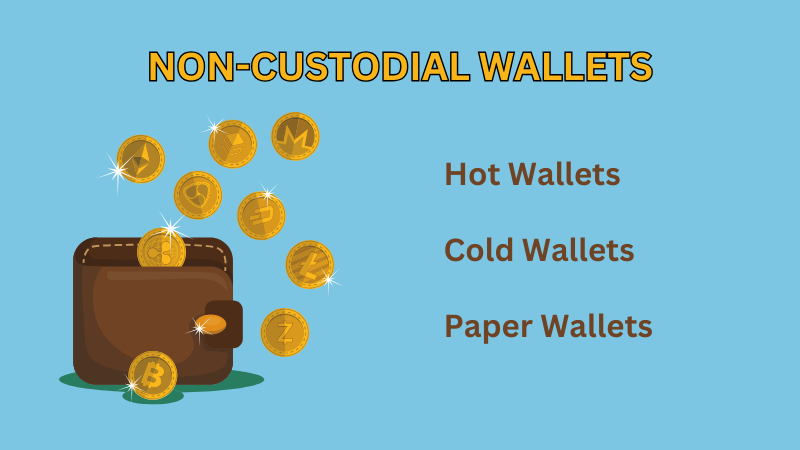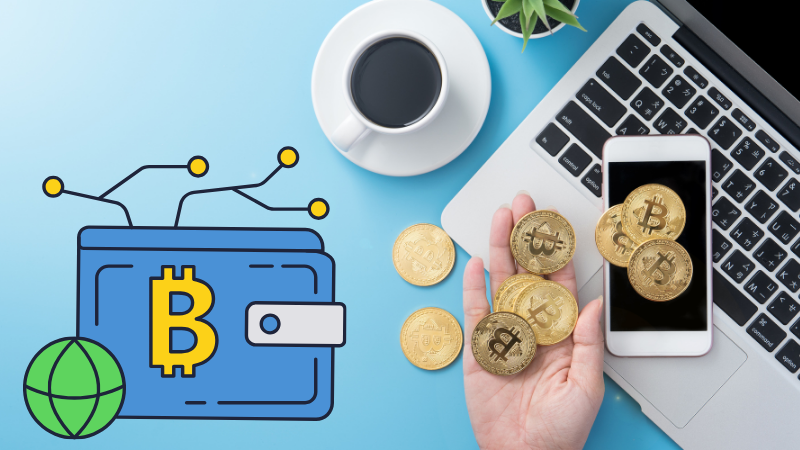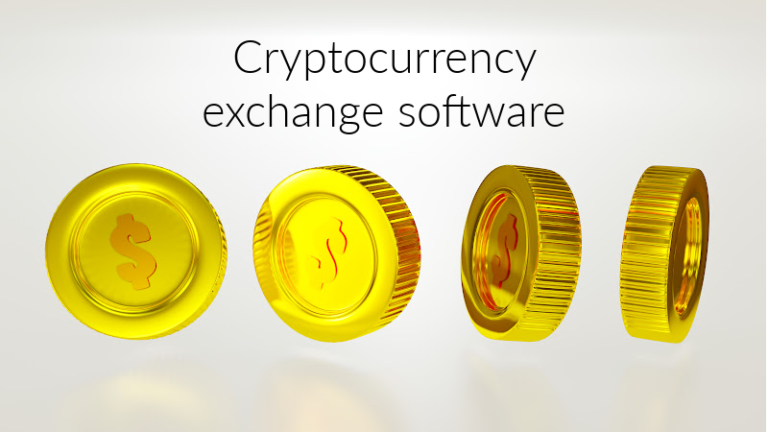Crypto Wallets and Exchanges
If you’re into cryptocurrencies, you must consider where to keep them safe. You can use either crypto wallets or crypto exchanges.
Crypto wallets are like your own digital bank, keeping your crypto safe and under your control. Exchanges are websites where you can buy, sell, or trade crypto.
In this article, we analyze the differences between regular crypto wallets and exchanges, and figure out which is better for storing your crypto.
What Is a Crypto Wallet?
Crypto wallets are digital versions of your regular wallet, but instead of holding cash, they store special codes that let you use digital money like Bitcoin or Ethereum. Think of them as keys:
You have a public key that everyone can see (it’s like your digital address) and a private key that only you should know (it’s the key to unlock your money).
Crypto wallets and exchanges work together. Wallets manage your digital coins, and exchanges are places where you can trade them, just like you would at a currency exchange at the airport.
Remember, even though we call them wallets, they don’t actually hold the coins. They just keep your keys safe so you can get to your digital money on the big online ledger called the blockchain.
How Does a Crypto Wallet Work?
A crypto wallet is like a digital safe for your cryptocurrency, and it uses special codes to keep your money secure. You have two important codes: one that everyone can see, called a public key, and one that’s just for you, called a private key.
Think of your public key as your home address that you give to friends so they can send you letters. In the crypto world, people use your public key to send you digital money.
Your private key is like the key to your house. It’s very secret, and you use it to prove that the money in your wallet is really yours.
It’s like signing your name on a check. You should never share your private key because they can take all your money if someone else gets it.
When someone sends you digital money, they move it from their wallet to yours. To make sure the money goes to the right place, your private key and public key have to match up.
If they do, the money gets added to your wallet, and you can spend it. Just remember to keep your private key safe, like a password.
Types of Crypto Wallets
Crypto wallets come in different forms, each offering various features, levels of security, and accessibility. Here are the most common types:

Non-Custodial Wallets
These are wallets where you’re the only one who controls your private keys, which means you have total control over your money. This is different from wallets, where a company holds your keys for you.
Hot Wallets
These wallets are always connected to the internet. They’re easy to set up and use, and you can find them as web, desktop, or mobile apps.
While they’re convenient, they’re not as secure as wallets that aren’t connected to the internet because they can be vulnerable to hackers.
Cold Wallets
These wallets are not connected to the internet, which makes them more secure. They’re good for keeping your cryptocurrency safe for a long time.
Hardware wallets are little devices that keep your keys safe offline. Paper wallets are simply your keys printed out on paper and kept in a safe place.
Paper Wallets
These are a type of cold wallet. They’re secure because they’re just your cryptocurrency keys printed on paper. You can also use a special program to create and print these keys.
Custodial Wallets
With these wallets, a company holds onto your private keys. This can be handy if you don’t want to deal with managing your keys yourself, but it also means you have to trust the company to keep your keys safe.
What Is a Cryptocurrency Exchange Wallet?
A crypto exchange wallet is a special wallet that you get when you use a cryptocurrency exchange to buy and sell digital currencies. Think of it like a bank account that the exchange gives you to keep your cryptocurrencies safe while you trade them.
Big exchanges like Coinbase, Binance, or Kraken provide and look after these wallets for you.
Most of the time when we talk about a crypto exchange wallet, we’re talking about wallets on exchanges where everything is organized by a company (these are called centralized exchanges).
On the other hand, there are places called decentralized exchanges (like where you use MetaMask or Trust Wallet), and they don’t give you a wallet. Instead, you use your own wallet to trade there.

How Does a Crypto Exchange Wallet Work?
When you sign up for a crypto wallet exchange, they create a special wallet just for you. The exchange looks after this wallet, and they keep the special keys to it, sort of like a bank keeping your money safe.
To start trading, you move your cryptocurrencies into this wallet on the exchange. The exchange then takes care of your digital money, keeps track of how much you have, and helps you buy, sell, or swap your crypto.
Trading on an exchange is pretty handy, but there’s a catch. Since the exchange holds everyone’s money and keys, hackers might try to break in and steal them. If they get past the exchange’s security, you could lose your crypto.
Storing Coins on Crypto wallet and Exchange
Cryptocurrency exchanges are like online marketplaces where you can trade regular money, like dollars or euros, for cryptocurrencies. On these websites, you can also trade different types of cryptocurrencies with each other.
When you buy cryptocurrencies on these exchanges, they often keep them in a digital wallet for you. However, the exchange has the keys to these wallets, which means they can access your crypto.
Crypto wallets are like secure digital safes that you can either download as software or buy as a small device (hardware). They let you keep your crypto’s keys, which are like super-secret passwords, so only you can get to your coins.
With these wallets, you can send and receive crypto easily and keep track of all your different cryptocurrencies in one place.

The Best Non-Custodial Crypto Wallets
When picking a non-custodial wallet, think about what you need and how much security and ease of use you want. Here are five good options:
MetaMask
This is a simple browser extension wallet that lets you use apps on the Ethereum network. It’s easy to use, making it great for beginners.
Exodus
This wallet works on your computer and lets you handle lots of different cryptocurrencies. It’s user-friendly with nice charts and tools to keep track of your coins. You can also connect it to a Trezor for extra security.
Trust Wallet
This one is for your phone and holds many types of cryptocurrencies. It has a special browser for using blockchain apps. Trust Wallet is good for people who use lots of blockchain services.
Electrum
This wallet has been around for a long time and is just for Bitcoin. It’s very secure with extra steps like passwords and two-factor authentication. It’s not as easy to use as others, so it’s better for people who know a bit about technology.
Ledger
Ledger makes physical wallets called Ledger Nano S and Ledger Nano X. They keep your cryptocurrency safe by storing it offline. Ledger wallets support lots of cryptocurrencies and can work with other wallets for easy use.
Are Crypto Wallet Exchanges Safe?
Exchange wallets are handy, but they can be risky. Hackers like to target exchanges, so if one gets attacked, you might lose your crypto. Also, the exchange can freeze your account and control your money.
But, these exchanges do try to keep things safe with extra security steps, like codes for logging in and rules for taking money out. They might even have insurance for theft.
Still, there’s a saying: “If you don’t have the keys, you don’t really own your coins.” So, if you want to be really safe, it’s better to move your crypto into your own wallet, especially if you’re not trading a lot.
How to Use Crypto Exchange Wallet?
Moving your cryptocurrency from an exchange to a wallet is pretty simple. Here’s what you need to do:
1. Get a wallet ready. You can choose from a digital wallet on your computer or phone, a physical hardware wallet, or even a paper wallet with your details printed on it.
2. Your wallet will have a unique address. Make sure to copy it.
3. Go to the exchange where your crypto is and find the section for sending or withdrawing crypto.
4. Pick the type of crypto you want to move, and paste your wallet’s address into the right spot.
5. Check everything over and confirm the transfer. You might need to pay a small fee, which can change depending on the exchange and how busy the crypto network is.
6. Wait for the exchange to send your crypto to your wallet.
Always double-check the address you’re sending to because once you send the crypto, you can’t undo it.
Conclusion
It’s important to know the difference between crypto wallets and exchanges. Crypto wallets are like personal digital safes where you keep your cryptocurrencies safe and under your control. Exchanges are online platforms where you can buy, sell, or trade cryptocurrencies.
While wallets offer more security since you hold your own keys (like digital passwords), exchanges provide convenience for trading but can be riskier due to potential hacks.
If you’re saving your crypto for a long time, using a wallet is smarter, but if you’re actively trading, exchanges are more practical.
FAQ
What's a crypto wallet❓
A digital tool to store, send, and receive cryptocurrencies securely.
What's a crypto exchange❓
An online platform for buying, selling, or trading cryptocurrencies.
Wallet or exchange for storing crypto❓
Use a wallet for long-term storage for security, and an exchange for convenient trading.
What are the risks of using an exchange❓
Exchanges can be hacked, and if you don’t control your keys, you risk losing your crypto.
How to move crypto to a wallet❓
Get your wallet’s receive address, then on the exchange, select send or withdraw, enter the address, and transfer.
Is the exchange crypto wallet safe?❓
The safety of an exchange crypto wallet depends on factors such as the exchange’s reputation, security measures, regulations, and personal security practices.






